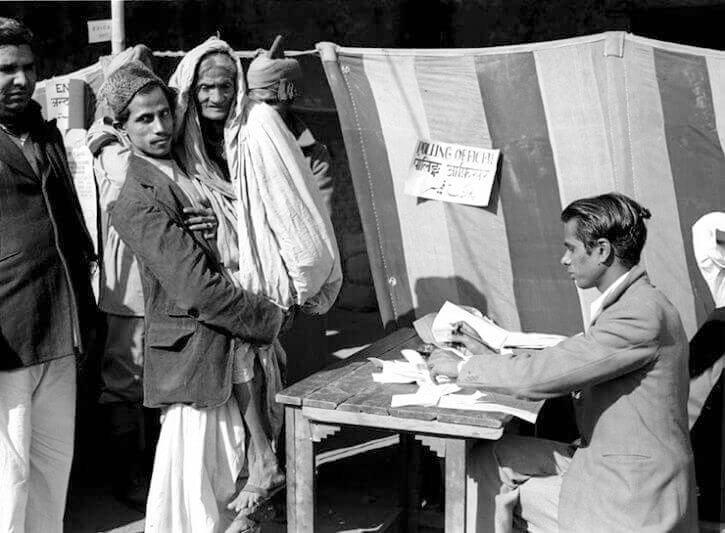
Figure 1.-- Here we see Indians voting for the first time in history (1920). Indians are highly crutical of British colonial role which is not unreasonable, but it is undeniable tht Britain brought democracy to India. |

|
The British Parliament passed a series of laws entitled the Government of India Act. The 1919 Act marked a turning point. For the first time Parliament addressed the issue of Indian particiption in government. Parliament allowed this with the Dominions, but never before with a non-British population. The Indian struggle for independence began in earest after World War I (1914-18). India had played a role in the British victory. Mahatma Gaandhi inspired the Indian people in an unorthodox independence movement led by the Congress Party (INC). The INC was not satisfied with the Moley-Minto Reforms and pressed for more Indian participation in government. The British Parliament responding to Indian demands and recognizing the importance of India in World War I passed the Government of India Act to permit increased Indian particpaton in the governing of the colony (1919). And not just increased appointmnts--for the first time Indians got to vote. The Act established for the first time a national parliament with two houses. About 5 million Indians were given the right to vote, a small percentage of the total population but a huge number in comparison to any earlier period of Indian history. This was the first election ever held in India. Mos Indians today are critical of British cvolonioal rule. Few are aware that democracy and elctions are a Briutish political innovation and somrtyhing tht never befiore iccurred in India. In addition, Indians were appointed to ministerial positions for the first time. Provincial governments could now include Indian nationals, including ministers of education, health, and public works Amd a commitment was made to form a commission in 1929, to determine if India was ready for expanded governmental reforms. The British continued to control all central government and within the provincial governments, the British retained control of the critical posts of tax and security (police and military). Congress as it developed included both Muslim and Hindu leaders. Largely through Ghandi's influence it was a non-violent movement.
Navigate the Children in History Website:
[About Us]
[Introduction]
[Animals]
[Biographies]
[Chronology]
[Climatology]
[Clothing]
[Disease and Health]
[Economics]
[Ethnicity]
[Geography]
[History]
[Human Nature]
[Law]
[Nationalism]
[Presidents]
[Religion]
[Royalty]
[Science]
[Social Class]
[Bibliographies]
[Contributions]
[FAQs]
[Glossaries]
[Images]
[Links]
[Registration]
[Tools]
[Children in History Home]
Navigate the HBC national pages:
[Return to the Main Indian indepedence movement]
[Return to the Main British Raj page]
[Return to the Main Indian history British period]
[Return to the Main Indian history page]
[Return to the Main Pakistani history page]
[Return to the Main countries page]
[Australia]
[Banladesh]
[Burma]
[China]
[India]
[Indonesia]
[Japan]
[Korea]
[Malaysia]
[Nepal]
[Pakistan]
[Sri Lanka]
[England]
